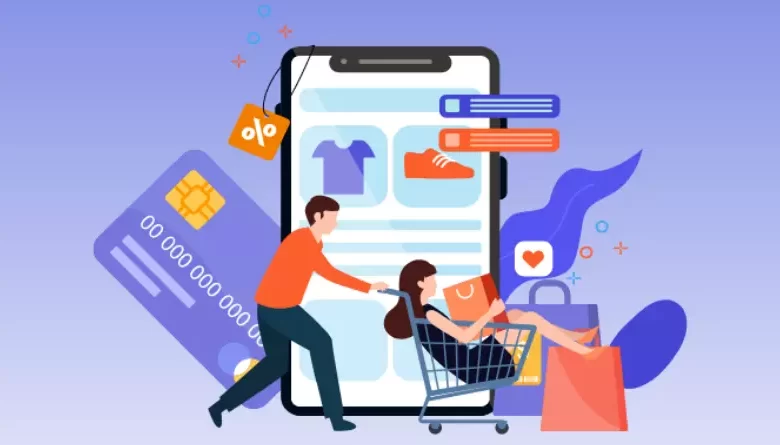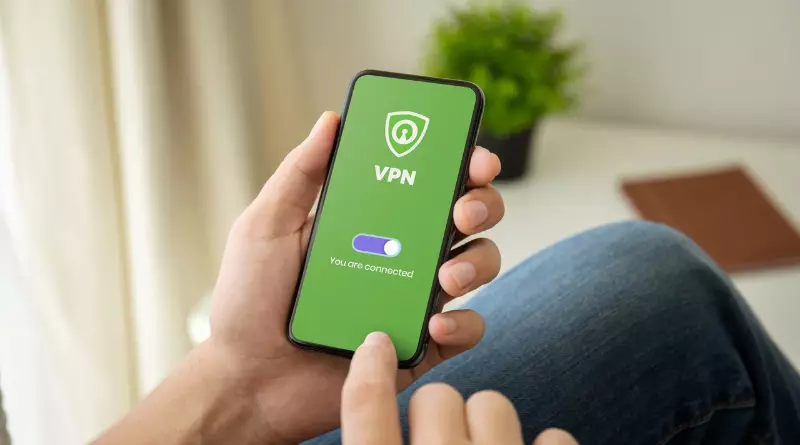How to Ensure Your Safety While Shopping Online?

Online shopping has become increasingly secure in recent years, thanks to safer payment options and improved fraud detection. In the United States, around 80% of the population, which is approximately 262 million people, shop online. On average, each American spends about $5,381 per year on online purchases. More than 55% of U.S. Many consumers now favor online shopping over traditional in-store shopping.
The growth in online shopping was largely driven by the Covid-19 pandemic. People sought safety and the convenience of shopping from home. But this trend has been further accelerated by recent technological advancements, such as mobile apps and various delivery services, making online shopping the preferred method for many.
Additional benefits of online shopping include:
1.Finding deals and discounts more easily.
2.Shopping in peace without salespeople bothering you.
3.Privacy when buying sensitive or discreet items.
4.Comparing products from various stores or suppliers more conveniently.
5.Sending gifts to friends and family with ease.
Top 20 Tips for Secure Online Shopping
Online shopping is incredibly convenient, but it comes with some privacy concerns. However, don’t worry – there are practical steps you can take to protect your online shopping experience.
1.Stick to Reliable Stores
Always research a website before making a purchase. Shopping with stores you’ve used before is a good practice. If you’re exploring a new online shop, check out customer reviews on sites like Trustpilot, Yelp, or Google.
2.Check Website Security
Ensure the retailer’s website uses SSL encryption by looking for “https” in the web address and a padlock icon in the browser’s address bar. Adding a VPN for extra security is a good idea.
3.Guard Your Personal Info
Be cautious about sharing information on websites. Provide only the necessary details for your purchase. Be wary of strange email or phone requests asking you to verify your account information. Remember, legitimate retailers won’t ask for sensitive details like your birthdate or passwords.
4.Be Cautious on Public Wi-Fi
Shopping on public Wi-Fi without a VPN increases the risk of your data being intercepted. If you don’t use a VPN, it’s best to steer clear of online shopping in places like hotels, airports, public hotspots, buses, and cafes.
5.Create Strong Passwords
When making online accounts, use robust, unique passwords and enable two-factor authentication to make it harder for anyone to access your account.
6.Choose Secure Payment Methods
Use secure payment gateways like PayPal, Stripe, or Venmo where possible. Link your credit card rather than your debit card for an extra layer of protection.
7.Beware of Too-Good-To-Be-True Deals
If a deal seems too good to be true, it probably is. If a product is significantly cheaper compared to other websites, it might be a counterfeit. Always stay vigilant while shopping online.
8.Keep an Eye on Your Bills
Set up automatic payment notifications through your online banking or payment services. This way, you’ll get immediate alerts for any payments, whether they’re legitimate or not.
9.Use a VPN for Extra Protection
A VPN (virtual private network) creates a secure online path for your data. When shopping online, a VPN not only enhances your security but can also save you money. On special shopping days like Black Friday and Cyber Monday, prices can vary based on your location, browsing habits, and device. With a VPN, you can change your virtual location to access the best deals and make the most of these sales.
10.Check Payment Options
Credit cards are a reliable choice for online shopping. They’re supported by banks and widely accepted by online retailers. If there’s an issue, it’s relatively easy to stop a credit card payment.
11.Read Online Reviews
Despite the rise of fake reviews, trusted review sites like Trustpilot are still useful. Watch out for excessive reviews with very similar or overly positive language.
12.Type URLs Directly
If you receive emails about online deals, type the retailer’s website address directly into your browser’s address bar. This ensures the deal is authentic and helps you avoid fake links.
13.Create a Separate Email
Consider making a separate email address for online shopping to reduce spam and keep your shopping separate from your main email. You can also use anonymous email forwarders to protect your primary address.
14.Be Careful on Your Phone
If possible, use the official app of a retailer when shopping on your mobile device. Be cautious with links from URL shortening services, as you may not know where they lead. Stay safe while shopping from your phone.
15.Log Out
After Shopping Unless you’re the only one using your device, always remember to log out of your accounts once you’ve finished shopping online.
16.Get Antivirus Protection
Protect your online shopping activities by installing antivirus or anti-malware software on your devices. Many trustworthy antivirus programs offer browser extensions and add-ons for added security.
17.Don’t Hesitate to Complain
If what you ordered doesn’t match the description, is damaged, or doesn’t arrive, don’t hesitate to file a complaint. Reach out to the website, retailer, reseller, or even a state or federal oversight agency. After all, you paid for your order!
18.Consider Virtual Credit Cards
To add an extra layer of security to your online transactions, think about using virtual or temporary credit or debit cards. Some credit card providers offer temporary card numbers that you can use for specific purchases.
19.Verify Physical Addresses and Phone Numbers
Whenever possible, look for businesses with verifiable addresses and phone numbers on their websites. You can easily check the address on Google Maps. It’s worth noting that larger online platforms like Amazon also accommodate third-party resellers, and any disputes will be handled by Amazon.
20.Read the Terms and Conditions
Always take the time to read the terms and conditions when making an online purchase. Ensure that the retailer is legitimate, especially when buying gift cards, to ensure a smooth experience for the recipient.
Online Shopping Risks You Need to Be Cautious About
While online shopping is incredibly convenient, it comes with some significant risks that shoppers should be mindful of.
1.Identity Theft:
Identity theft is a common and serious concern. It happens when insecure websites become targets for hackers looking to steal your personal information, such as your name, address, and payment details. Hackers often use phishing emails to attempt to gather your personal information. To protect yourself, it’s essential to stay vigilant by regularly monitoring your statements and email notifications for any unexpected or suspicious purchases made in your name.
2.Stolen Data
If an online store’s security is breached, it could lead to the compromise of personal and financial information for all customers. This stolen data might be sold online, potentially resulting in credit card theft or identity theft.
3.Fake Apps
When shopping through mobile apps, be cautious and ensure you use official apps developed by the online retailers themselves. To verify the authenticity of an app, download it directly from the retailer’s official website or check reviews on Google Play or the Apple App Store.
How to Report a Suspected Fake Shopping Website
If you encounter a website that appears to be a fraudulent shopping site, taking action is essential. Here’s how to report it:
1.Contact Google or Microsoft:
Reach out to major search engines like Google or Microsoft. They can investigate and potentially remove the site from their search results.
2.In the United States:
•FTC (Federal Trade Commission):
Report the fake site to the FTC, which deals with consumer protection. They can take action against the fraudulent site.
•FBI’s Internet Crime Complaint Center (IC3):
If you’re in the U.S., you can also report it to the IC3, which handles internet-related crimes.
When reporting, provide as much information as possible about why you believe the website is fake. Your input can be valuable in their investigation. Protecting others from falling victim to scams is an important part of reporting such sites.





